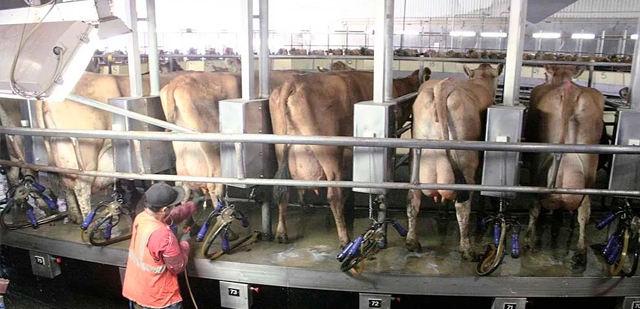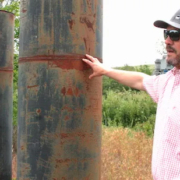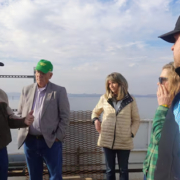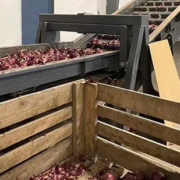Oregon regulators vote against curtailing stockwater exemption
Published 5:15 pm Tuesday, December 15, 2020
By Mateusz Perkowski

A worker at a dairy milks cows on a carousel system. Oregon water regulators have rejected a petition to limit the stockwatering exemption in two critical groundwater areas.
Oregon water regulators have rejected a petition to restrict groundwater pumping by large dairies within a 257-square-mile area in Umatilla and Morrow counties.
The Oregon Water Resources Commission voted unanimously Dec. 15 to deny the request by Stand Up to Factory Farms, a coalition of environmental groups and others, to establish a 5,000-gallon daily limit on water withdrawals by new or expanded “concentrated animal feeding operations” in the region.
Under the state’s stockwatering exemption, water can be diverted or pumped for livestock without a water rights permit from the Oregon Water Resources Department, which is overseen by the commission.
Stand Up to Factory Farms contended that “mega dairies” and other CAFOs should be stopped from relying on this exemption to use “unlimited amounts of water” in the two groundwater critical areas in Northeastern Oregon.
Members of the commission agreed the petition wasn’t the right way to resolve problems with declining groundwater in the area, which should involve a more wide-ranging approach than targeting the stockwatering exemption alone.
“I don’t think this is the right venue or the vehicle to do that,” said Katherine Kihara, commission member and retired civil engineer with the U.S. Bureau of Reclamation.
A better approach would be to coordinate with other state agencies that oversee CAFOs, which wouldn’t be accomplished under the regulation proposed by the petition, she said.
Bruce Corn, a commission member and row crop farmer, said he’d prefer a more inclusive strategy instead of the narrow focus of the petition, which seemed “punitive” to a particular industry.
“It’s more complex than implied by the request in the petition,” said Bob Baumgartner, a commission member and official with the Clean Water Services agency.
Instead of dismissing the petition outright, however, the commission directed OWRD to continue discussing the issue as it considers its policy priorities. “
It certainly raises issues that are important and we should consider going forward,” said Meg Reeves, commission chair and retired attorney from Oregon State University.
Tom Byler, OWRD’s director, said he’s made clear to potential CAFO operators that they should look at more sustainable alternatives than relying on the stockwatering exemption.
“It’s not something we want to promote,” Byler said.
While the agency has competing policy considerations and limited resources, the problem of aquifer decline is a significant concern statewide, he said.
“Groundwater is a big priority for us and has been for some time,” Byler said. “I think these issues will continue to percolate out there, whether it’s the Umatilla Basin or another part of the state.”
While proponents of the petition continue to believe the stockwatering exemption should be restricted in the region, they’re encouraged that OWRD will consider the issue in its priority planning, said Brian Posewitz, staff attorney for the WaterWatch of Oregon nonprofit, a member of the coalition.
It’s heartening that OWRD would discourage CAFO operators from relying on the stockwatering exemption, but that may not be enough to dissuade someone who’s determined to rely on it, he said.
The regulation proposed in the petition would provide a simple way to stop such water usage without OWRD having to invoke a complicated administrative process, Posewitz said.
“We’re disappointed they didn’t move forward with the rule-making, but we’re happy the petition brought more attention to this issue,” he said.
Cities, counties and others in the region are “invested and committed” to fixing the groundwater problem, but the petition represents an attempt by “obstructionists” to exploit it for their own purposes, said JR Cook, executive director of the Northeast Oregon Water Association nonprofit.
“It’s not our job to attack specific industries that use water,” Cook said.
Groups involved in Stand Up to Factory Farms, meanwhile, have stood in the way of projects intended to prevent groundwater declines, he said.
“Every time we propose something to fix it, they oppose it,” Cook said. “It doesn’t pass the straight face test, for sure.”





